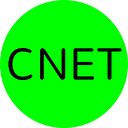What is Cloud Computing in Simple Terms?
Introduction
In the ever-evolving landscape of technology, grasping fundamental concepts becomes paramount. This comprehensive guide aims to unravel the intricacies surrounding cloud computing, making it accessible by simplifying complex jargon for a broader audience.
Unveiling the Cloud: An Overview
Cloud computing is a revolutionary paradigm, reshaping how we manage data, software, and computing resources. Let’s navigate through this innovative concept step by step.
Defining Cloud Computing
Cloud computing truly refers back to the delivery of computing offerings-which include storage, processing energy, and packages-over the net. Users can get admission to these services remotely, similar to tapping right into a good-sized virtual reservoir, putting off the want for nearby servers or personal devices.
Key Components of Cloud Computing
Understanding edge computing involves recognizing its primary components:
- Infrastructure as a Service (IaaS): This bureaucracy is the foundational layer, providing virtualized computing sources.
- Platform as a Service (PaaS): Facilitating builders in building, deploying, and dealing with applications without coping with infrastructure intricacies.
- Software as a Service (SaaS): Delivering software packages over the internet removes the need for local installation.
Advantages of Cloud Computing
The adoption of cloud computing yields a plethora of benefits:
- Cost Efficiency: Operating without extensive physical infrastructure.
- Scalability: Easily adjusting resources based on demand.
- Data and Apps: May be accessed from any location with an internet connection.
Popular Cloud Service Providers
To delve into the realm of cloud computing, familiarize yourself with leading service providers:
Choosing the right cloud model is critical for organizations. Let’s unravel the differences between public, private, and hybrid models.
Public Cloud
In the public cloud model, services are offered over the internet and shared among multiple users. It proves to be a cost-effective solution for businesses of all sizes.
Private Cloud
Dedicated to a single organization, the private cloud offers enhanced control and security. It is an ideal solution for handling sensitive data.
Hybrid Cloud
Combining aspects of both public and private clouds, the hybrid model provides flexibility for businesses to tailor their cloud strategy based on specific needs.
Challenges and Solutions in Cloud Computing
As with any technological advancement, edge computing poses challenges. However, effective solutions exist to mitigate these challenges.
Security Concerns
The convenience of fog computing comes with the responsibility of securing sensitive data. Employing robust measures such as encryption, multi-factor authentication, and regular audits can alleviate security concerns.
Downtime
While rare, cloud service outages can occur. Implementing redundancy and backup systems ensures minimal disruption in such instances.
Data Migration
Smooth migration of data to the cloud demands meticulous planning. Adopting a phased approach and thorough testing of systems can overcome migration challenges.
Conclusion: Embracing the Cloud with Confidence
Understanding cloud computing in simple terms empowers individuals and businesses to harness its transformative potential. Embrace the cloud with confidence, recognizing that it’s not merely a technological shift but a gateway to unprecedented possibilities.
FAQs — Answering Your Queries
Is Cloud Computing Safe for Storing Sensitive Information?
Absolutely. Leading cloud providers invest heavily in security measures, ensuring the safety of your data.
How Does Edge Computing Impact Internet Speed?
Contrary to concerns, edge computing often enhances internet speed by distributing data processing across multiple servers.
Can Small Businesses Benefit from Mesh Computing?
Certainly. The scalability and cost-efficiency of cloud services make them particularly advantageous for small businesses.
What Happens if the Internet Connection Fails?
Most cloud services offer offline functionality, allowing users to work seamlessly without a stable internet connection.
Are There Risks of Vendor Lock-In?
While possible, choosing reputable cloud providers with flexible contracts minimizes the risk of vendor lock-in.
How Does Fountain Computing Affect Energy Consumption?
Cloud computing can contribute to energy efficiency by optimizing server usage and reducing the need for individual data centers.
Originally published at https://cnetreuters.com on November 30, 2023.
